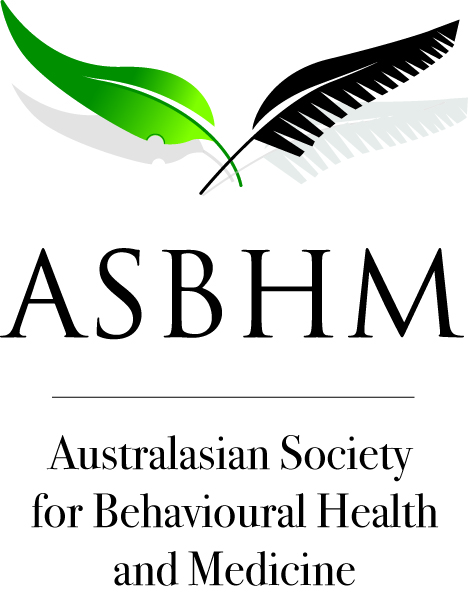
RESERVE YOUR SPOT AT THE CONFERENCE DINNER BY CLICKING HERE

Sydney is a cosmopolitan global city: where every neighbourhood has its own distinct energy and character. From the coastal attractions of beaches and the harbour, to quirky and tucked-away villages with their own unique neighbourhood vibe, Sydney has it all. More than 40 airlines make 700+ direct international flights to Sydney Airport every week from Asia, Europe, and the Americas. Within Australia there are connections to Sydney offered by all airlines from full-service to budget. The ASBHM conference will be held on the campus of Macquarie University on the leafy north shore of Sydney. Efficient transport links from the new Metro system will bring conference attendees directly to the university campus.
The ASBHM conference will include internationally known keynote speakers who will deliver talks on topics of critical importance to behavioural medicine. We welcome your abstract submissions to present at the conference across a wide range of tracks.
We have developed a fantastic program (click here) and look forward to welcoming you to our beautiful City in 2020.
CONFERENCE TRACKS
1. Chronic disease management (e.g., cancer, heart disease, asthma)
2. Strategies for disease prevention
3. e-Health and m-Health approaches
4. Health behaviour change
5. Addressing health behaviour across the lifespan
6. Supporting better health outcomes for indigenous, at risk, and minority populations
7. Mental health
8. Occupational health
9. Behaviour change across health systems and policy
10. Implementation strategies in health behaviour and health care
KEYNOTE SPEAKERS

Professor Louise Sharpe
Improving Physical and Mental Wellbeing in Patients with Persistent Pain
Synopsis: Chronic pain affects 1 in 5 Australians, and many more experience persistent pain resulting from other chronic illnesses, including cancer, multiple sclerosis and diabetes. Psychological approaches to managing pain are efficacious, but (a) are associated with small effect sizes; and (b) very few people relative to the number affected access gold-standard intensive programs. I will outline a program of research that has focused on improving both efficacy and access. Specifically, we can enhance the efficacy of interventions by (1) focusing on the most efficacious components of treatment; and (2) using theories to develop novel approaches. Further, identifying moderators of treatment efficacy is important, so that we can better match treatments to patients. However, even with improvements to interventions, we need to ensure people can access interventions. Internet-based approaches and other minimal interventions, such as cognitive bias modification, have been shown to be effective in treating persistent pain. Earlier in the trajectory of illness to prevent psychological and physical morbidity with minimal, scalable interventions could form the first stage of a stepped care approach, which has yet to be trialed in pain.
Click here for Prof. Louise Sharpe's bio
Professor Frank Penedo
From Controlled Trials to Implementation and Dissemination Models: Providing Precise and Patient Centered Care in Cancer Survivorship
Synopsis: Psychosocial interventions in psycho-oncology have proven to be effective in improving health related quality of life, reducing symptom burden and promoting overall adjustment to cancer treatment. Several decades of research have documented effective mechanisms of these evidence-based interventions, yet limited work has disseminated or implemented these interventions across health systems to optimize precision care by delivering brief and effective treatments that are guided by patient characteristics and particularly patient reported outcomes (PROs). Advances in health information technology (HIT) and expanding capabilities of electronic health records (EHRs) provide ideal platforms to implement and disseminate such interventions. This keynote will discuss opportunities and challenges for dissemination and implementation of psychosocial interventions for cancer survivors aimed to improving health related quality of life, as well as discuss remaining needs of identifying how other factors such as culture and social context may impact the efficacy of these interventions.
Click here for Prof. Frank Penedo's bio

WORKSHOPS
Workshop 1: Facilitating Adjustment to Chronic Illness to Improve Mental and Physical Wellbeing
Presenter: Professor Louise Sharpe

Description:
Adjustment is, invariably defined in the literature as some aspect of psychological function. However, in reality, adjustment is a process that begins at the point of diagnosis, continues throughout the course of the illness and responds to changes in illness status. Recent research confirms that many of the factors known to be associated with the development of psychological disorders in the absence of physical illness are also relevant to the development of psychological problems in those with ill health. The prevalence of psychological disorders is also generally found to be considerably higher amongst those with a variety of health problems. Nonetheless, the majority of patients who experience even the most devastating of illnesses seem able to adjust to illness without developing psychological problems. The process(es) by which these people are able to adjust and, in many cases, find positive meaning in their experiences, is important to understand in order that we might be able to better facilitate adjustment amongst those who fail to negotiate this process without intervention.
Workshop Summary: Learning Outcomes
- Understand the processes involved in adjustment to illness
- Learn how to adapt CBT to various stages of the adjustment process
- Understand the similarities and differences in using CBT with people in poor health, using examples from a range of illnesses, especially anxiety and depression
- Discover key strategies that help negotiate the process of adjustment, using schemas, beliefs and acceptance processes
Chronic pain affects 1 in 5 Australians, and many more experience persistent pain resulting from other chronic illnesses, including cancer, multiple sclerosis and diabetes. Psychological approaches to managing pain are efficacious, but (a) are associated with small effect sizes; and (b) very few people relative to the number affected access gold-standard intensive programs. I will outline a program of research that has focused on improving both efficacy and access. Specifically, we can enhance the efficacy of interventions by (1) focusing on the most efficacious components of treatment; and (2) using theories to develop novel approaches. Further, identifying moderators of treatment efficacy is important, so that we can better match treatments to patients. However, even with improvements to interventions, we need to ensure people can access interventions. Internet-based approaches and other minimal interventions, such as cognitive bias modification, have been shown to be effective in treating persistent pain. Earlier in the trajectory of illness to prevent psychological and physical morbidity with minimal, scalable interventions could form the first stage of a stepped care approach, which has yet to be trialed in pain.
Workshop 2: Resilience Training for ASBHM2020 Early Career Researchers
Presenter: Dr. Monique Crane

Description:
For Early Career Researchers Dr. Monique Crane will deliver an introduction to resilience that will cover the basics including:
(1) An introduction to resilience and its development
(2) Identifying demands
(3) Capacities for resilience
(4) Working on personal resilience
(5) Special topic 1: Understanding and managing perfectionism
(6) Special topic 2: Developing daily recovery routines
OUR GUIDING PHILOSOPHY
(1) Resilience is learnt via a process of experiential learning involving self-reflection and adaptation.
(2) Resilience is developed by leveraging everyday stressor experiences across the lifespan. However, exposure to stressors alone is insufficient for the ongoing development of resilience. We suggest that this development also requires a learning process. Our team has taken an innovative approach to the emergence of resilience by proposing that everyday stressor events are crucial to the development of resilience when scaffolded in nuanced adaptive self-reflective practices that facilitate learning.
(3) We apply a personalised and strengths based approach to resilience training. Unlike conventional resilience training that takes a ‘one size fits all’ approach, we have developed a personalised self-reflection strategy to building resilience. This strategy enables participants to identify and build on their individual strengths, and to harness these in the face of challenges.
The nature of training delivery and framing of the program varies depending on the organisational needs analysis. However, the guiding philosophy dictates the learning objectives of the program.
CONFERENCE DINNER
Chedi Thai

This year the conference dinner will be at Chedi Thai on the 6th of February at 7PM. For those wanting to travel in a group, we will be meeting out the front of Macquarie University station at 6PM. For $50, attendees will receive a 2-course banquet featuring a variety of Thai dishes. There will be dishes to accommodate vegetarian and gluten-free diets in addition to traditional Thai meals.
Chedi Thai is located at McMahons Point, a short walking distance from the stunning views of the famous Lavender Bay and Sydney Harbour. Please join us for a buffet style gastronomic evening including award winning Thai dishes to suit every palate. The restaurant is located at 182 Blues Point Road, McMahons Point, just 3-minute walk from North Sydney Train Station: https://chedithai.com.au/location.html
PEERS CONNECT SOCIAL NIGHT

Students and Early Career Researchers are invited to a social networking night at 6PM on the 5th of February at TGI Fridays Macquarie. This casual event gives students an opportunity to meet and network early in the conference. Attendees can order their food and drink at the bar and pay-as-you-go on the night.
TGI Fridays is located at the Macquarie Shopping Centre opposite the Macquarie University Campus. It takes approximately 15 minutes to walk to the centre from the conference venue. Attendees are encouraged to meet out the front of the conference venue at 5.30PM so we can walk over together. For more information, check out: https://www.tgifridays.com.au/the-menu/macquarie/
